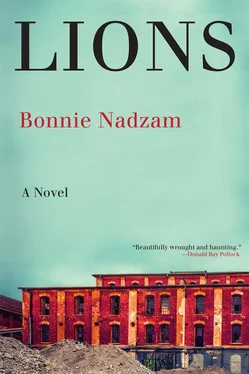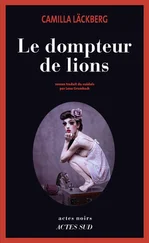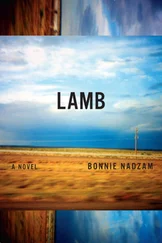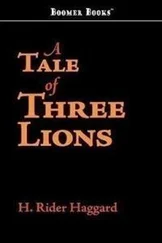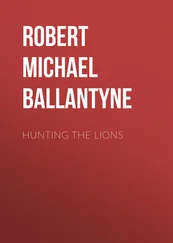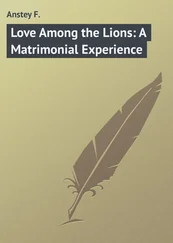Dock made a sound of affirmation.
Jorgensen shook his head. “Here’s another riddle for you,” he said. “How long can a man believe he lives in a country that doesn’t actually exist, standing in the middle of one that does?”
“Oh, come on now,” May said. “Is it as bad as that?”
“Seventy-one years at least. And I’ve known older men and women than that around here. Seventy-one years telling myself it’s farm country. Or that it’s this or that kind of country.” He shook his head again. “When you finally wake up,” he said, “it’s too late. You’re an old man.” He opened his hands, trembling before him.
“Where would you have gone?” Dock asked him.
“Might have just adapted to what’s actually here. That would’ve been the most sensible thing.”
“Surprised to hear you say that,” Chuck said.
The old man grinned. “Doesn’t sound very interesting, does it?”
“Well, come on,” Boyd said. “A man wants to make something of himself.”
“The endless becoming,” the old man said to that. “You become a farmer. You become a businessman. You become a Christian. You become a Democrat. You become a Republican. To hell with it all.” They were all quiet a moment, then Jorgensen raised his hand in farewell. “Well, anyway,” he said, and pushed out through the door. His old Ford pickup was in the street. They watched it pull away.
“God,” Boyd said, “people work themselves to death around here.”
“Perhaps you all didn’t know it,” May said, “isolated out here as you are, but the point is no longer to work hard. It’s to survive the longest, and the most comfortably.”
Chuck whistled and picked up his hat. “Go easy on us, May.”
May reached back and turned up the lights. “That’s it, men,” she said. “Go home and get some sleep.”
It was by their happiness that the good people of Lions approximated their value in the eyes of the Lord and, if you asked them, they would tell you how happy they were. How blessed. On Sundays most of them drove to the Bible Church in Burnsville, so while Lions was small enough, and bare enough, Sunday mornings it was dead empty, and absolutely still. In early summer, as on this particular morning, if you went out walking over one of the weedy fields or even down the dusty road toward the highway, the plain would open for you, pretty as a prayer book. The last of the white stars faded and the day slowly absorbed the paper face of the moon, like a soft blue cloth soaking up a small white spill. Georgianna Walker woke alone, and moved through the rooms of the house, opening windows, then stepped outside toward the highway.
She was in her tennis shoes and nightgown when Chuck found her walking along the bar ditch. He pulled over slowly behind her, a good hundred yards behind, and hustled to catch up with her on foot. He didn’t want to startle her.
“Mrs. Walker?” he called as he jogged, his keys jangling. It was a warm day already, the deep greens from snowmelt and early rain already drying out. She did not stop. She was carrying a white wooden cross. It struck him as odd. There were crosses like that stabbed into the front lawns of some of the houses across Lions, but he didn’t remember ever having seen one at the Walkers’ place. The Walkers weren’t like that. “Mrs. Walker! Georgie!” She paused and looked back. Her pale eyes were radiantly blue. She smiled, and he fell into step beside her.
“Making me run, at this hour!”
“I’m sorry, Chuck. I didn’t know you were there.”
“Good morning, Georgie. Are you in your nightgown?”
“Oh,” she said, with a little embarrassed laugh, “I figured everyone was in Burnsville.”
“Now didn’t you say last night when we left you that you’d take good care of yourself?”
“I’m sure I did.”
“You shouldn’t be alone on the side of the road like this.”
“Oh, Chuck I’m OK. And I’m hardly alone,” she said, and put her hand on his arm. It was worn and wrinkled and lined with veins. “But thank you.”
“What have you got there?”
She held it up. The cross was six inches wide and ten inches long. “We had it in the shop,” she said. “I don’t know what on earth for, but now of course I’m glad we did.”
“What’s it for?”
“For the dog, Chuck,” she said. “We meant to do it right away, but John got sick.”
He was quiet a moment. “Can I help you with it?”
“I’d appreciate the company and the help.”
They walked side by side until they came to the place where the grass had been overturned and the man had placed a small cairn of stones and gravel. Around them the long fingers of morning light played in the grass, fascinated with it, teasing and combing it in the wind. Georgianna sat down beside the pile of stones in her nightgown and set a hand over it.
“Poor creature,” she said.
An old pickup with a handmade wooden trailer sped past, rattling rusted metal.
“So loyal,” she said, “you know?” She looked up at him.
“Good dogs are that way.”
“We could have all up and left the town but if this dog thought that man was still here somewhere it would’ve waited forever.”
“It’s a strange thing.”
“Beautiful thing.”
They kneeled over the little mound and just above it dug at the dirt and gravel with their fingers until they had five or six inches cleared out.
“Should’ve brought a spade.”
“Oh well,” he said, “now we have dirty hands from good work.”
She smiled. “That sounds like John.” She placed the cross upright and held it still while he filled in the dirt. Then she sat back down in the dirt and held out her hand, palm up. At first he didn’t know what she was doing. Then he sat beside her and took her fingers.
Chuck could see she was crying, and his eyes filled with tears and he pulled his lips into his mouth.
“We are so sorry,” she finally said. “Forgive us. Amen.”
“Amen.”
A rig filled with sheep sped past and stank horribly. Instinctively Chuck held his breath in his nose for a few seconds after it passed. Georgianna brushed off her nightgown and stood, leaning on his hand to steady herself.
“Will you join me and Emily for supper later?”
“Thank you, Chuck, but no. I’ll gladly take the ride home though.”
“Absolutely. Don’t you move. You wait right here and I’ll pull up the car.”
Every day was brighter and hotter than the day before. The air hung still around the empty blocks of Jefferson Street. Hot wind pulsed in the open windows. The highway rippled in dusty waves in the distance. After five days, still no Gordon. Chuck considered filing an official report but was swayed by Georgianna, who said she knew where Gordon was — just taking a break from the world, John used to do it regular — and that he was fine.
For some of the old-timers, disappearances like Gordon’s were just part of living in such deceptively wide-open country. Any of them at the Evening Primrose nursing home could tell you about a handful of faces they’d known as children, and you don’t see them for years, and then there they are again, those old faces at once bright and familiar and ravaged with age.
They’d show up at the bar, maybe.
Or they’d be right there at the nursing home in lawn chairs propped up on the grass with blankets over their laps.
Went off looking for something, some said to explain it, but came back.
Gone forever, others said. Joined that old procession of ghosts walking back and forth, back and forth, from the West Wind motel on the far edge of town and out across the howling wilderness, people and their dogs and mules and covered wagons and broke-down Chevrolets all rolling slowly over the chalk hills and through arroyos beneath a haze of sparkling dust.
Читать дальше
